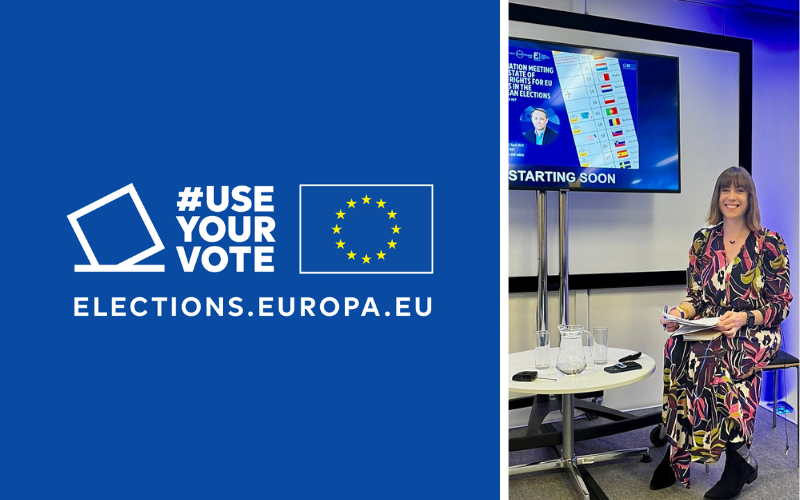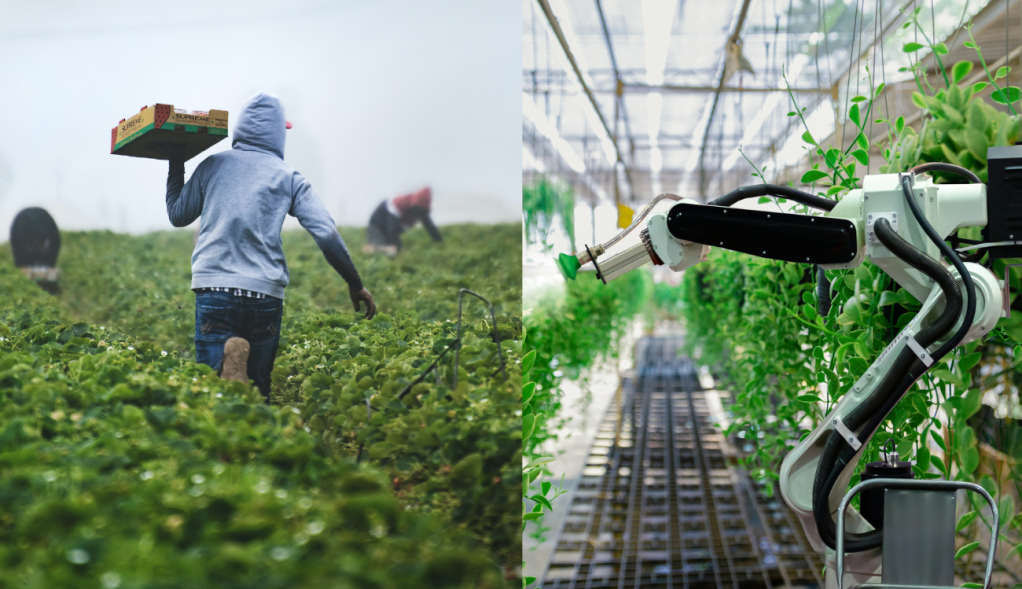European Institute Student Ambassador Matthieu Hildreth interviews Typhaine Morillon about the European Parliament’s work in the UK, the upcoming European elections, and the role of young people in European democracy.
Typhaine Morillon has worked with the European Parliament for close to 15 years. A French national, she started working in Brussels at the Visitors Centre, before working on citizen engagement and campaigns. Since March 2020, she has worked as Press and Public Relations Officer at the European Parliament Liaison Office in the UK (EPLO), managing projects tailored to EU and UK audiences. Recently, much of her work has centred around the European elections scheduled for 6-9 June.
Ms Morillon recently visited UCL to deliver a masterclass hosted by the European Institute on the EU elections, equipping students with tools to raise awareness on voting. During this visit, I had the opportunity to sit down with Ms Morillon and discuss EPLO’s work, challenges in communicating with EU citizens in the UK, and ways that young people can engage with the European elections.
The European Parliament’s Work in the UK
EPLO UK plays a crucial role after Brexit, with its London office being one of only two European Parliament Liaison Offices outside the EU (the other being in Washington D.C.). With 5-6 million EU citizens living in the UK – comparable to the population of Ireland or Denmark – EPLO focuses primarily on supporting these people and connecting them with their elected representatives at the EU level.
EPLO’s work, however, is designed not only for EU citizens but for all UK civil society and interested audiences. Their initiatives, ranging from school interventions to cultural events and political dialogues, aim to strengthen UK-EU relations and highlight shared values. One key channel is the UK-EU Parliamentary Partnership Assembly, an inter-parliamentary body composed of 35 UK MPs and 35 MEPs, which actively discusses the implementation and operation of post-Brexit agreements.
Communicating with EU citizens in the UK
Discussing EPLO’s work post-Brexit, Ms Morillon highlighted that its main challenge has been to maintain the relevance of European institutions to EU citizens in the UK. Ms Morillon views their role as a call to action to remind EU citizens that they have not been forgotten. In line with this mission, EPLO regularly conducts outreach across the UK to ensure engagement with citizens nationwide.
Social media is a vital tool for citizen engagement, allowing tailored content to reach thousands of people cost-effectively. The European Parliament is constantly evolving its outreach strategy to maintain relevance, and recently launched a TikTok account to target younger audiences. In the UK, EPLO’s social media campaign showcases, for instance, short videos of Europeans living in the UK encouraging fellow EU citizens to vote.
Raising Awareness of the EU Elections in the UK
Ms Morillon’s recent focus has been on promoting the upcoming European elections. The first challenge is informing EU citizens living in the UK of their eligibility to vote and providing essential voting information. The European Parliament uses concise and evocative campaign materials, stressing the importance of ‘Using Your Vote’ and offering sign-up voting reminders. Additionally, EPLO has created resources explaining voting methods for EU nationals in the UK.
To emphasise the impact of citizens casting their vote, the European Parliament also highlights tangible examples of how its legislation affects citizens’ daily life in areas such as product standards, labour conditions, and freedom of movement across the EU.
Mistrust in institutions, especially post-Brexit in the UK, has posed challenges for institutions worldwide, including the European Parliament. To bridge this gap, EPLO collaborates directly with civil society organisations, public and private institutions, and individuals. This campaigning method makes messaging more relatable and broadens its reach to new networks.
The Role of Young People in the European Elections
Discussing the elections, Ms Morillon especially emphasised the importance of youth participation, highlighting its long term-impact on democratic engagement. Voting should be seen as an opportunity both to make your voice heard and to avoid letting others decide for you.
Beyond voting, she encourages young people to use all available platforms to engage with the democratic process, noting that students are uniquely positioned to raise awareness of the elections among peers, their university community, and online.
Working With the European Parliament
To conclude our discussion, I questioned Ms Morillon on what it’s like to work at the European Parliament, to which she emphasised how she values its dynamic and diverse environment, describing it as an informal workplace offering opportunities to interact with people across career stages and languages.
She also highlighted curiosity and empathy as essential values for thriving in such a multicultural setting. The ‘European bubble’ allows you to learn about diverse cultures and upbringings, prompting reflection on personal assumptions and biases. For anyone interested in Europe, Ms Morillon recommends visiting Brussels to experience its cultural richness first-hand!
Matthieu Hildreth is a UCL European Institute Student Ambassador and final-year student on the dual Bachelor’s degree between Sciences Po Paris and University College London, specialising in Economics, Politics and Spanish.
Featured image description: Picture of Typhaine Morillon next to an EU Election #useyourvote poster
Featured image Credit: European Union
Note: The views expressed in this post are those of the author, and not of the UCL European Institute, nor of UCL.





Leave a comment